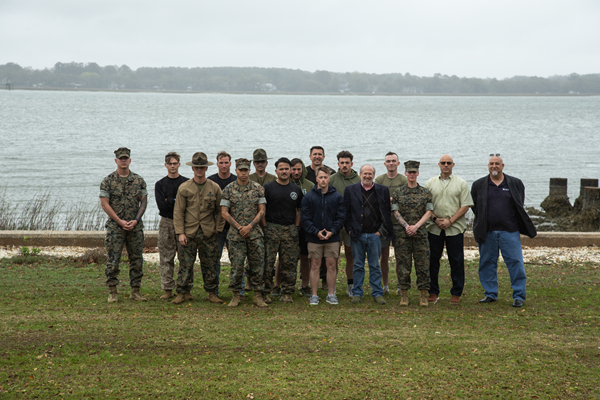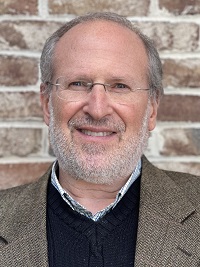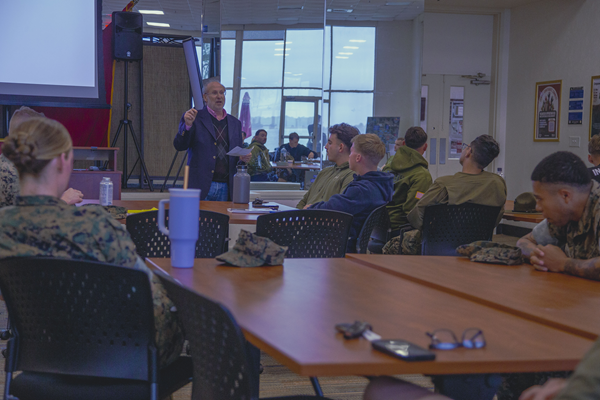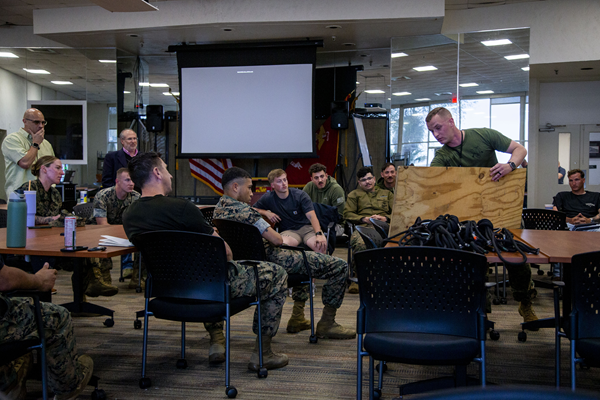Enhancing Marine Corps Academic Training: A New Approach to Teaching

In a groundbreaking initiative, the University of South Carolina Beaufort (USCB) has partnered with fellow educators and curriculum developers to improve the efficacy of recruit training at Marine Corps Recruit Depot (MCRD) Parris Island, S.C. Dr. Bruce Marlowe, Chair of the Department of Education at USCB, has been at the forefront of this innovative program aimed at bridging the gap between military science and learning science.

The collaboration began in October 2023 when Damien DeMalteris, a curriculum developer at Parris Island, reached out to Marlowe. DeMalteris was concerned about the long-term retention of critical information by recruits, noting that while recruits often performed well on tests at the end of their training cycle, their retention of the material significantly declined shortly thereafter.
Marlowe explained that the primary goal of the course is to address these gaps by introducing research-informed instructional strategies to instructors from a wide range of specialties at Parris Island—including Drill Instructor School, the Weapons and Field Training Battalion (WTBN), and the Recruit Training Facility.
“The course is designed to help instructors think about how to teach in a way that promotes long-term memory,” Marlowe said. “We want to ensure that the important information recruits learn during their training endures well beyond their initial tests.”

The course structure is divided into two main parts. The first half focuses on introducing key principles of learning science and demonstrating effective teaching techniques. The second half involves the instructors themselves, who conduct 15-minute teaching demonstrations and receive feedback from their peers. While sometimes harsh, this peer feedback has proven to be an essential component of the experimental learning process.
Marlowe highlighted the success of the program, noting that they have now completed their fourth cohort of course participants.
“We’ve seen very favorable reviews from both recruits and their supervisors,” he said. “The evaluations of instructors who have taken the course show significant improvement in their teaching effectiveness.”
One of the key findings that prompted the development of this course was the discovery that a large number of recruits who initially passed their tests failed the same tests just two weeks later. This highlighted the need for a teaching approach that goes beyond rote memorization and focuses on deeper understanding and long-term retention.
The course has been well-received, and there are plans to scale it up to involve more faculty members and reach a larger number of instructors on base. Marlowe mentioned that colleagues from USCB’s computer science and education departments have joined him as observers, with the aim of expanding the program in the future.

Marlowe emphasized the importance of engaging teaching methods, such as asking probing questions and encouraging active participation, rather than relying solely on lectures and PowerPoint presentations.
“Simply talking at people for 90 minutes is not effective,” he said. “We need to engage recruits in a way that promotes critical thinking and long-term memory.”
The initiative aligns with USCB’s mission to respond to regional and local needs.
“This is clearly a local need,” Marlowe said. “Parris Island reached out to us, and we have the expertise to help. It’s part of our mission to meet the needs of local communities.”
-USCB-
JS 6/18/25